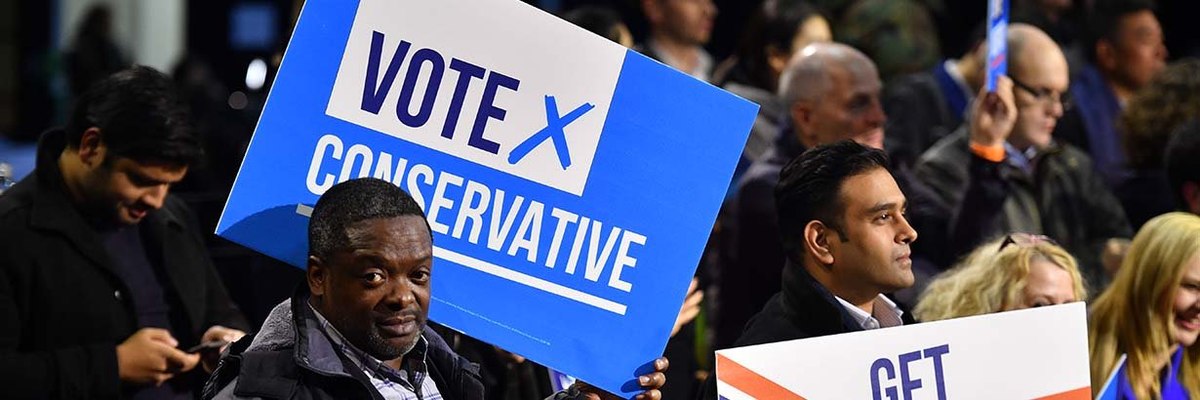Half are currently willing to consider either the Tories or another party
Headline voting intention polls have remained very negative for the Tories since Rishi Sunak took over the top job in October, with Labour’s lead over the Conservatives ranging from 21-points to 28-points. This paints a grim picture for the prime minister, who hasn’t yet managed to claw back as many of those who voted for his party in 2019 as he perhaps would have hoped.
In fact, when we look at the full voting intention (i.e. including those who will not vote or are currently unsure) from surveys gathered between late February and mid-March, just 42% of 2019 Conservative voters say they would vote that way again if an election was held tomorrow. By comparison, Labour are holding on to 73% of their 2019 voters.
While 26% of 2019 Tories intend to vote for another party – with Labour (11%) and Reform UK (9%) being the biggest beneficiaries – a quarter (24%) of these voters are currently unsure how they would vote (just 9% of 2019 Labour voters say they currently don’t know).
As YouGov has noted previously, these unsure voters should be easier for Sunak to win back to his party than those who are saying they’ll vote for another party. Given they are such a large part of the Tories’ 2019 electorate, how these voters decide to cast their ballot at the next election will make a huge difference to the party’s prospects for remaining in government – or, at least, avoiding electoral oblivion.
Using a sample of 1,068 voters who backed the Conservatives in 2019 and who are currently unsure how they would vote, we find that seven in ten (69%) still say there is a chance they’d vote Tory again. Only 9% say that they would never consider the party again, with the remaining 22% saying they are unsure if they could in the future.
Sizeable minorities of unsure 2019 Tories would be open to voting for a different party, with Labour (39%), and the Lib Dems (31%) the most likely. A further 19% say there’s a chance they’d vote Green and 15% say the same for Reform UK.
To dig further, we have grouped unsure Tory voters into four distinct camps:
- those who would only consider voting for the Conservatives (16%),
- those who would consider the Conservatives and at least one other party (53%),
- those who would not consider voting for the Conservatives but would for another party (12%), and
- those who answered “don’t know” or that they would not consider voting for each of the seven major British parties (19%).
From this data we can infer that the 16% who fall into Group 1 are pretty likely to ‘hold their nose’ and return to the Conservatives come an election, even if they are dissatisfied with the party currently. On the other side, it would be an incredibly tricky task to win back the 12% in Group 3 who say they would never consider the Conservatives again and are open to voting for a rival party, even if they have not committed to one yet. While Group 1 is slightly larger than Group 3, these groups effectively cancel each other out at a national scale.
This leaves us with around half (53%) of unsure 2019 Conservative voters who would still consider the Tories but would also be open to the idea of voting for another party.
If Group 2 voters were to switch allegiances at the next election, the large majority (78%) would only move to a party left of the Conservatives while one in ten (10%) would switch to Reform UK on the right of the Conservatives. An additional 12% would consider moving left or right of the Tories.
Labour specifically has the possibility of picking up 61% of these Group 2 voters, particularly the 29% who say Labour are the only party they’d consider other than returning to the Conservatives.
Accounting for around 4% of the overall adult population, these wavering Tories who are open to returning to the party or going elsewhere are very much in play, and could prove to be a vital group in deciding who will win the next election.
See the full late February to mid-March voting intention results here
See the results for which parties unsure 2019 Conservative voters would consider voting for here
Photo: Getty






